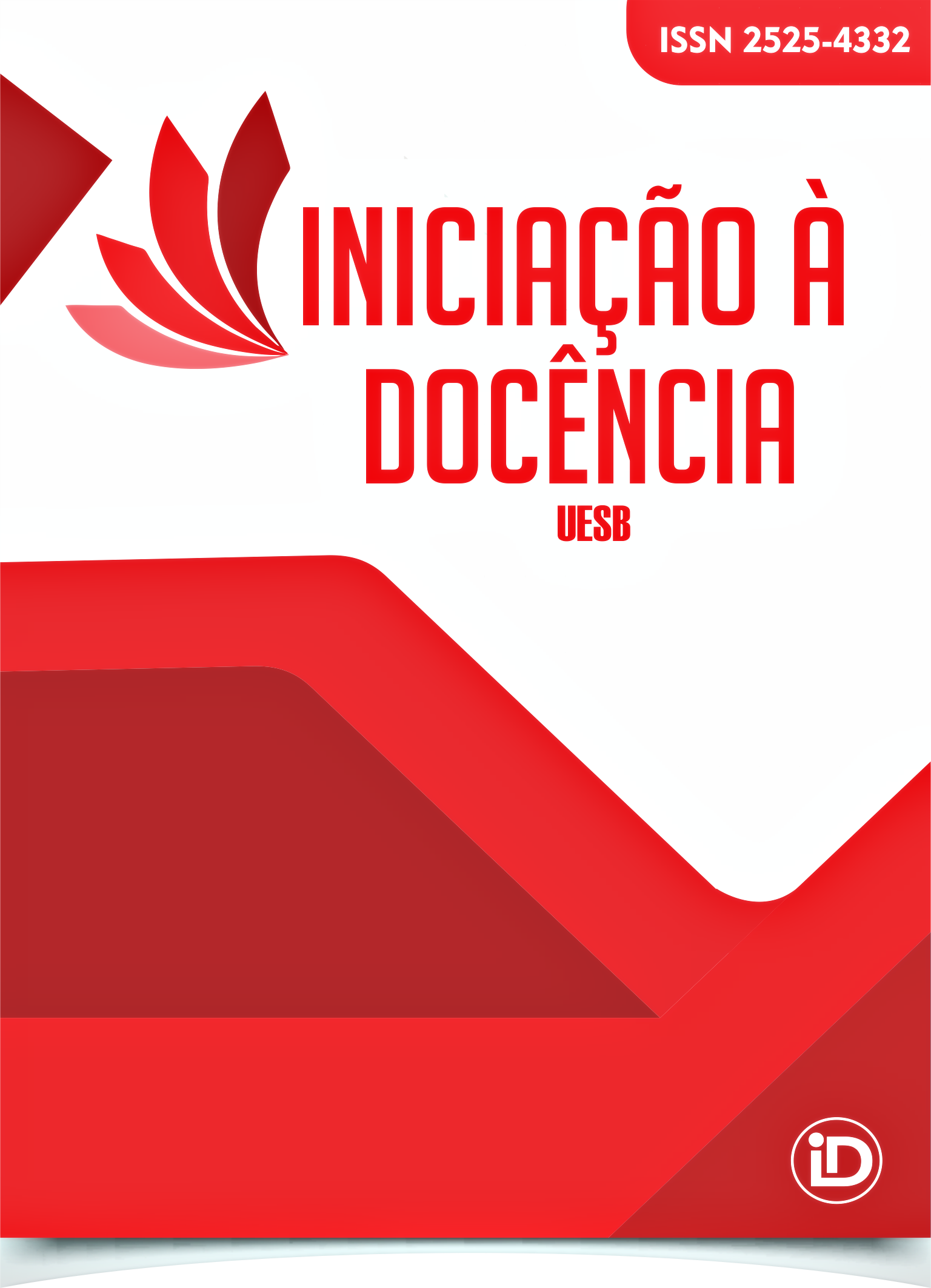O PARFOR e a reflexão sobre a prática das professoras: a formação profissional das alfabetizadoras
DOI:
https://doi.org/10.22481/riduesb.v5i3.8303Keywords:
Formação Continuada; Parfor; Professor Alfabetizador.Abstract
The present work is the result of a research carried out in order to fulfill part of the requirements of the undergraduate course in Pedagogy, at the State University of Southwest Bahia, referring to the subject "Final Work for the Undergraduation", which had as object of research the role of PARFOR in the professional development of literacy teachers. In this regard, we used the following research question: how did PARFOR contribute to the professional training of literacy teachers? To analyze this issue, we used semi-structured interviews as the main research instrument, which enabled us, through obtaining the reports of the five research subjects, graduate teachers in Pedagogy by PARFOR/UESB, in Jaguaquara/Bahia, to know the contribution of that course in reviewing the practice of literacy teachers. Thus, the referred research gave us the opportunity to know some contributions, according to the perceptions of the research participants, of the Pedagogy course, such as: the teachers' reflections on their practice and the possibility of relating it to the theory, as well as the acquisition of new knowledge by teachers, who learned to see students and their learning processes differently, as we will see in this study.
Downloads
References
ALONSO, M. (Org.). O trabalho docente: teoria e prática. São Paulo/SP: Pioneira, 2003.
BRANCO, A. 10 espécies de cactos e plantas suculentas fáceis de cultivar e manter. 2016. Disponível em: https://www.greenme.com.br/morar/horta-e-jardim/4731-10-especies-de-cactos-da-cultivar . Acesso em 06 de dez. 2018.
BRASIL. Ministério de Educação e Cultura. LDB. Lei n. 9394/96, de 20 de dezembro de 1996. Estabelece as diretrizes e bases da Educação Nacional. Brasília/DF: MEC, 1996.
______. Plano Nacional de Formação de Professores da Educação Básica – PARFOR. 2018. Disponível em: <http://www.capes.gov.br/educacao-basica/parfor> Acesso em: 15 de out de 2018.
______. A capes e a educação básica. 2014. Disponível em:
<http://www.capes.gov.br/acessoainformacao/informacoes-classificadas/57-salaimprensa/artigos/4721-a-capes-e-a-educacao-basica> Acesso em: 15 de out de 2018.
______. Analfabetismo cai em 2017 mas segue a cima da meta para 2015. 2018. Disponível em: <https://agenciadenoticias.ibge.gov.br/agencia-noticias/2012-agencia-de-noticias/noticias/21255-analfabetismo-cai-em-2017-mas-segue-acima-da-meta-para-2015>. Acesso em: 27 de nov de 2018.
______. Secretaria de Educação Especial. Política Nacional de Educação Especial na Perspectivada Educação Inclusiva. Brasília/DF. [Documento elaborado pelo Grupo de Trabalho nomeado pela portaria n. 555/2007, prorrogada pela portaria n. 948/2007, entregue ao ministro da Educação em 7 de janeiro de 2008]. Disponível em: <http://peei.mec.gov.br/arquivos/politica_nacional_educacao_especial.pdf> Acesso em: 05 de nov. de 2018.
GATTI. A. B. Formação de professores no Brasil: características e problemas. Educação & Sociedade, v. 31, n. 113, 2010, p. 1355-1379.
GAUTHIER, C. et al. Por uma teoria da pedagogia: pesquisas contemporâneas sobre o saber docente. 2. ed. Ijuí/RS: Editora Unijuí, 2006.
LUCKESI, C. Avaliação da aprendizagem escolar. São Paulo/SP: Cortez, 2005.
MANTOAN, M. T. E. Por uma escola de todos. LITI UNICAMP. [S.I] [2003]. Disponível em: <http://www.lite.fe.unicamp.br/cursos/nt/ta1.13.htm> Acesso em: 14 de mai. 2020.
_______. Ensinando à turma toda: as diferenças na escola. LITI UNICAMP. [S.I.] [2003]. Disponível em: <http://www.lite.fe.unicamp.br/papet/2003/ep403/uma_escola_de_todos.htm> Acesso em 14 de mai. 2020.
MINAYO, M. C. L. (Org.) Pesquisa social: teoria, método e criatividade. Petrópolis/RJ: Vozes, 2007.
SAVIANI, D. Formação de professores: aspectos históricos e teóricos do problema no contexto brasileiro. Revista Brasileira de Educação, v. 14, n. 40, 2009, p. 143-155.
SCHMIDT, L. M.; RIBAS, M. H.; CARVALHO, M. A. A prática pedagógica como fonte de conhecimento. In: ALONSO, M. (Org.). O trabalho docente: teoria e prática. São Paulo/SP: Pioneira Thomson Learning, 2003, p. 19- 36.
TARDIF, M. Saberes docentes e formação profissional. Petrópolis/RJ: Vozes, 2014.







